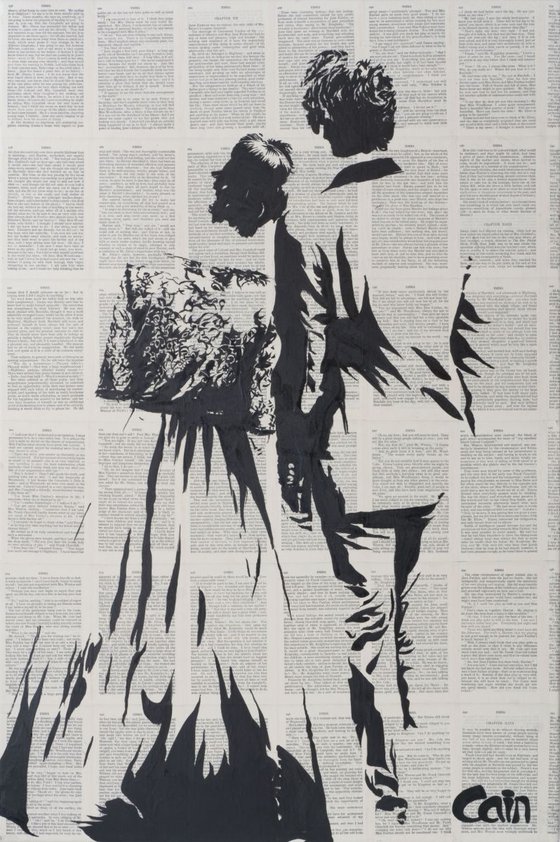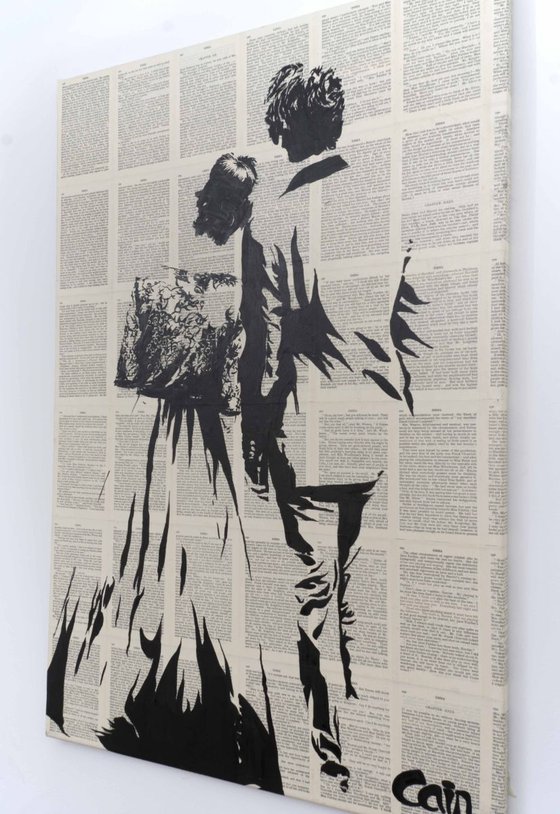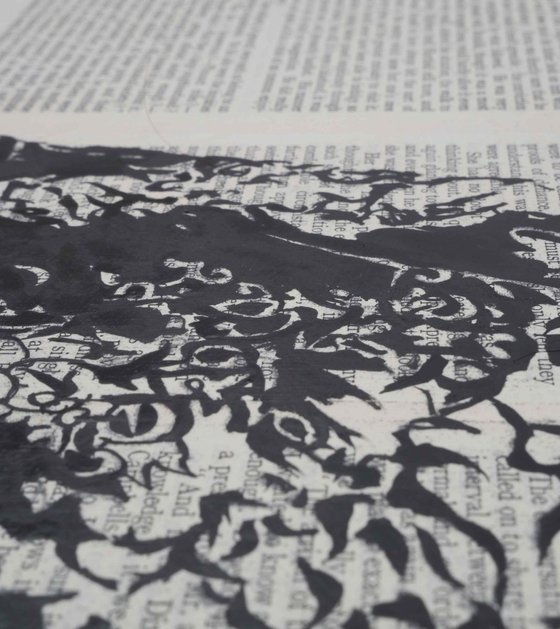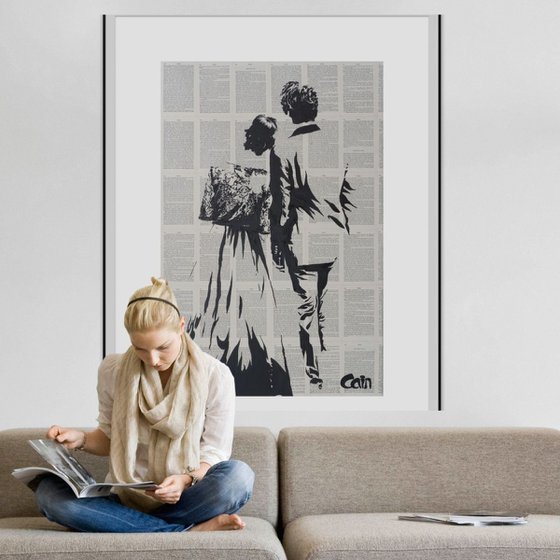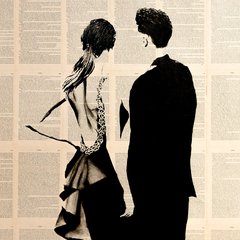- By medium
- By subject
- By budget
- Sales
- Gift cards
- Discover all art
- Artists
- Editors’ picks
- Ideas
Original artwork description:
This is the fourth in a series of works inspired by the May Ball which are held at the colleges of Cambridge University.
The tradition of May Balls in Cambridge started in the 1830s with the first official one being the First and Third Trinity Boat Club May Ball in 1866. It is thought they developed from the celebrations surrounding successes in the May Bumps - a set of rowing races which used to take place before the university examinations in May each year.
The balls were moved from May to June in 1882, and still take place in June, after examinations, but the name has been retained.
About my paintings:
I striving to create beautiful and intriguing imagery by painting carefully composed figures on canvas and paper. Any space between the figures exposes a background which gives them situational context and narrative.
Traditionally, vintage pages of a book only come alive when they are read. Following the book creation the passing of time and trends will influence a reader. These influences are sometimes reflected in annotations or sketches which a reader leaves behind. As time continues to pass the annotations or sketches might be observed in the future within the context of the page.
In reflection, my work attempts to show compositions which radiate a sense of this interaction between the narrative structure and the superimposed presence of the reader. This personified presence is typically turned away from the observer and their body language seemingly engages in the narrative which remains magically exclusive.
Stuart James Cain
Artist
Materials used:
Indian ink hand painted on vintage book pages from Jane Austen's 'Emma'
Tags:
#bankys #urban #man #female #women #couple #dressEvening Ball (2015) Painting
by Cain
2 Artist Reviews
£395 Sold
- Painting on Canvas
- One of a kind artwork
- Size: 91.44 x 60.96 x 1.27cm (unframed)
- Ready to hang
- Signed on the front
- Style: Urban and Pop
- Subject: People and portraits
Do you like this artwork?
This artwork has sold, but the artist is accepting commission requests. Commissioning an artwork is easy and you get a perfectly personalised piece.
Loading
Original artwork description
This is the fourth in a series of works inspired by the May Ball which are held at the colleges of Cambridge University.
The tradition of May Balls in Cambridge started in the 1830s with the first official one being the First and Third Trinity Boat Club May Ball in 1866. It is thought they developed from the celebrations surrounding successes in the May Bumps - a set of rowing races which used to take place before the university examinations in May each year.
The balls were moved from May to June in 1882, and still take place in June, after examinations, but the name has been retained.
About my paintings:
I striving to create beautiful and intriguing imagery by painting carefully composed figures on canvas and paper. Any space between the figures exposes a background which gives them situational context and narrative.
Traditionally, vintage pages of a book only come alive when they are read. Following the book creation the passing of time and trends will influence a reader. These influences are sometimes reflected in annotations or sketches which a reader leaves behind. As time continues to pass the annotations or sketches might be observed in the future within the context of the page.
In reflection, my work attempts to show compositions which radiate a sense of this interaction between the narrative structure and the superimposed presence of the reader. This personified presence is typically turned away from the observer and their body language seemingly engages in the narrative which remains magically exclusive.
Stuart James Cain
Artist
Materials used:
Indian ink hand painted on vintage book pages from Jane Austen's 'Emma'
Tags:
#bankys #urban #man #female #women #couple #dress14 day money back guaranteeLearn more
